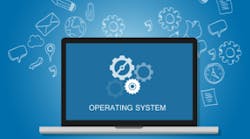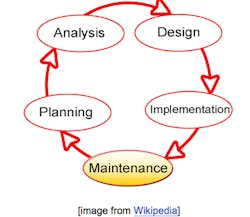Importance of a company’s track record in selecting dental practice management software
Selecting practice management software is a big task for any dental practice. It's important to have some guidelines to follow when it comes to selecting the software company.
YOUR PRACTICE MANAGEMENT SYSTEM (PMS) is the most crucial piece of software in your dental practice. Not only does it help streamline your documentation processes, it also helps create treatment plans, schedule patient visits, and manage your collections. When your practice management system experiences downtime, it can often result in downtime for your practice as well.
I often ask dentists about their thought processes when they select dental practice management software. Their most common answers are a reputable system, and a software vendor with a long record of success.
Only a handful of the many practice management systems available have a reputable track record of helping dental practices operate more efficiently. Here I’ll discuss why it’s crucial to select your PMS from one of these vendors, and explain the challenges that new software vendors face when they enter such a mature market. I'll also discuss when it makes sense to become an early adopter of a new product.
New software may lack key functionality
Developing high-quality software is challenging. It requires a talented team of software engineers to write high-quality, thoroughly-tested code, and frequent customer feedback in order to help prioritize features and changes to the product.
At a high level, the software development cycle looks like this:Successful software systems go through many of these cycles, and typically, the more cycles they go through, the better a product will be. In order to iterate through these cycles quickly, the software vendor needs to have a strong development and support team, and receive frequent customer feedback that guides in prioritizing features and identifying critical bugs in the software. All of these may be lacking at a new or small software company with a small development team.
If you become an early adopter of a new PMS system, it has a good chance of lacking some critical functionality you may need, or of having bugs that need resolution. With a slow product development cycle, any issues that you come across may take a significant amount of time to address. In contrast, a mature product that has gone through many software development cycles is less likely to have any glaring bugs and is likely to already have most of the functionality that you'll need.
New companies may go out of business
If you opt for a practice management system that has a small user base, there's the risk that the company will go out of business if they can’t gain significant traction. Then you'll likely have to switch to a new practice management system, which can be a burden. Not only will you have to migrate your data to the new system, which can be a challenge, but you'll also have to train your staff to use the new system, which takes time away from their normal responsibilities. All of this can lead to downtime for your practice.
According to Gordon Christensen’s March 2017 Clinicians Report, in 1999 there were approximately 208 dental software programs. The report noted that many of the 208 companies included in the 1999 report had either been purchased or had gone out of business by 2017.
It’s important to select a PMS that will not be going out of business. If a company has already earned a long track record of success and continues to support many satisfied customers, it has a significantly lower chance of being one of those companies.
When is it OK to go off the beaten path?
There are other, new categories of dental software outside of traditional practice management systems that are currently underutilized across the industry, largely due to lack of awareness. Many of these software systems were created to fill a void left by traditional systems. This is often how tech startups in Silicon Valley are created, and how new types of software eventually become widely adopted. Automated patient communication systems are an excellent example of this—in the early 2000s when this category of software was developed, many of the major players were not very well-known. Now they’re household names and are widely used across many dental practices.
Dental business intelligence software and intra-office communication software are two niche software categories that I believe will gain significant traction during the coming years. Though the current leaders in these categories may be less well-known than the leading practice management systems, they're still reputable software systems that can be worthwhile investments for your practice. If you want to reap the rewards that these lesser-known categories of software can provide, you'll likely have to become an early adopter of a system that you may not have heard of unless you actively follow the dental software space. But since these systems can take your practice to the next level, they're generally less risky to experiment with. You should still do your due diligence before purchasing from these vendors by doing demos, reading reviews from reputable review sites, and speaking with actual users.
Remember, when it comes to selecting your primary dental PMS system, experimenting with new, less well-known options introduces significant risk without much reward.







